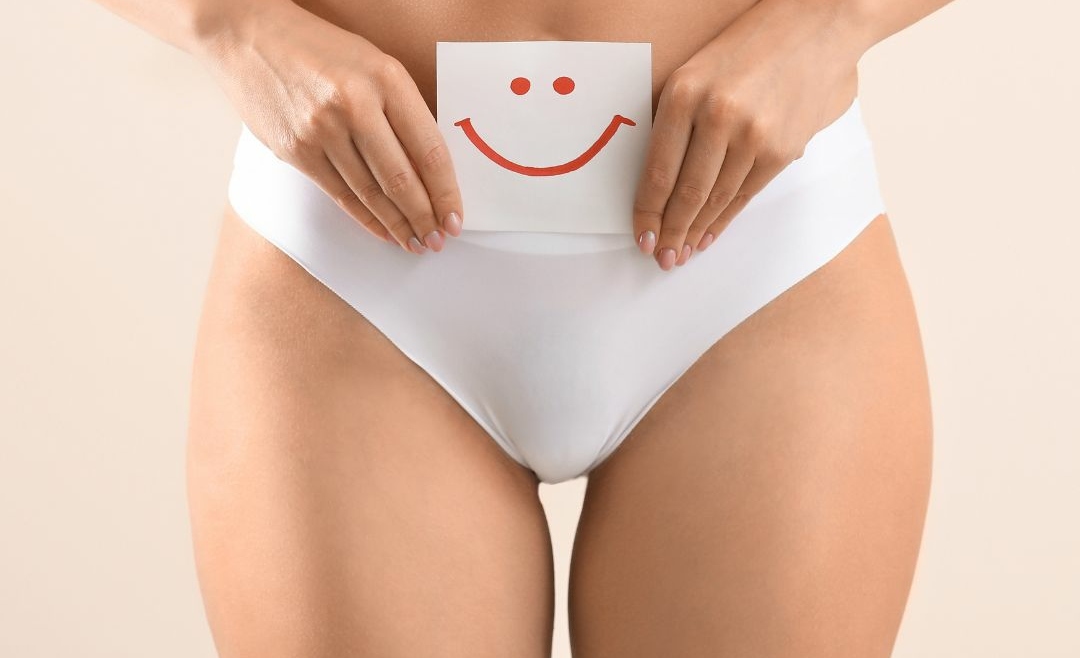By Skincare Specialist, Kim van Zyl
Let’s face it… Vaginas are pretty awesome. Vaginas self-regulate, they communicate, and they’re firm in their preferences; likes, and dislikes. They’re also pretty consistent. But even though not all vaginas and vulvas are created equal, there are some vulval and vaginal care and hygiene dos and don’ts that apply to all.
Table of contents
- THE DIFFERENCE BETWEEN THE VAGINA AND VULVA
- HOW TO KEEP YOUR VAGINA AND VULVA CLEAN
- IS THE PH BALANCE OF A VAGINA IMPORTANT?
- PROBIOTICS FOR VAGINAL HEALTH
- CAN UNDERWEAR AFFECT INTIMATE DISCOLOURATION AND VAGINAL HEALTH?
- ARE SCENTED PRODUCTS BAD FOR VAGINAL HEALTH?
- HOW SHOULD I WASH MY VAGINA?
- CAN EXERCISE AFFECT VAGINAL HEALTH AND HYGIENE?
- THE IMPORTANCE OF VISITING YOUR GYNEACOLOGIST
- INTIMATE WELLNESS TREATMENT SOLUTIONS
THE DIFFERENCE BETWEEN THE VAGINA AND VULVA
Good vagina and vulva health is essential, but there is a difference between the two and the care required to keep them in tip-top-shape. The vagina is a 7-10cm-long muscular canal that runs from the cervix, the lower part of the uterus, to the outside of the body. The vulva is all the outer stuff — including the labia, urethra, clitoris, and vaginal opening.
Now, let’s cover some basic dos and don’ts of vaginal care and hygiene.
HOW TO KEEP YOUR VAGINA AND VULVA CLEAN
The most important thing to understand is that your vagina is self-cleaning and it’s totally normal to see discharge (which may be thin or thick, clear or whiteish) in your undies at the end of the day. This is the result of your vagina’s amazing cleaning efforts. So, to interfere with this process with cleaning techniques like douching, feeding her pumpkin spice lattes, or spritzing her with vanilla mist is not a good idea. It might just upset the happy pH balance we need down there.
IS THE PH BALANCE OF A VAGINA IMPORTANT?
Did you know the pH of our vaginas sits slightly on the acidic side? The pH scale goes from 0-14 with zero being the most acidic, and 14 the most basic. The vaginal areas generally sit at a pH of between about 3.2 and 4.5. And the reason that it’s more acidic than basic is that the vagina contains an army of specialized bacteria that exist for the sole purpose of keeping your vaginal pH at an optimal level to ward off other hostile bacteria.
Our vaginas are as unique as we are so there’s no ‘one-size-fits-all’ solution, but research shows that not having an ideal amount of good bacteria can put you at risk of vaginal dysbiosis (too much bad bacteria). Alcohol, processed foods, sugar, and antibiotics can all lead to this dysbiosis – as can tight underwear or jeans and getting extra sweaty in the gym or the bedroom. When we experience dysbiosis we are more likely to experience irritants like thrush – not fun.
PROBIOTICS FOR VAGINAL HEALTH
If we’re having our cocktails, hitting a spin class, undergoing a course of antibiotics, or having lots of sex, we need to support all of that by keeping our good bacteria stocked up so the bad guys don’t have the chance to take over. We can do this by keeping our diet both varied and loaded with probiotic foods like yogurt, bananas, and kiwi.
We can also take specific probiotics (consult with your gynae on this one!) that encourage the growth and maintenance of good bacteria to help prevent vaginal dysbiosis.
CAN UNDERWEAR AFFECT INTIMATE DISCOLOURATION AND VAGINAL HEALTH?
Not everything is meant to last forever, and neither is your underwear. Tight-fitting, old (6 months old is considered old), and abrasive underwear can cause yeast infections. These types of underwear have been known to cause your vagina to become warm and moist. In the vaginal area, the heat and humidity create the perfect conditions for harmful bacteria to grow. So, it is very important that you keep these factors in mind when you go shopping for the “perfect” pair of underwear.
Abrasive underwear can also cause intimate hyperpigmentation. Resultant inflammation caused by the friction of tight or ill-fitting underwear may be mild and seem like nothing more than an occasional nuisance at first. But if it continues over a long period of time, there may be long-term effects such as hyperpigmentation of the surrounding skin.
When you go to buy underwear, look for cotton or cotton pad-based (gusset) underwear. They are breathable and prevent moisture from building up quickly. Conversely, synthetic materials such as nylon and spandex can hold moisture. As they get old, they get worse. The material used to make fancy-laced underwear can also be unpleasant to the touch which can lead to both discomfort and pain.
ARE SCENTED PRODUCTS BAD FOR VAGINAL HEALTH?
Even though some of us want lady flowers that smell like actual flowers, we need to take care in selecting the products we choose to care for our intimates at home. Some chemicals found in scented products can alter the pH of your vagina creating a breeding ground for bacteria and as mentioned, this is not ideal. This is why it’s especially important to avoid scented products.
Some of the most common scented items include:
- Tampons
- Sanitary pads
- Soap
- Lubricants
- Laundry detergent
It is important to get to know your products, and always opt for solutions that are as vagina and pH friendly as possible!
HOW SHOULD I WASH MY VAGINA?
As mentioned above, there is a difference between the vagina and the vulva. With the vagina being a self-cleaning work of art, we only need to focus on washing our vulva correctly.
To wash your vulva, nothing more than warm water is needed (no soap!). You can also use a clean washcloth to gently wash the vulva. It might be a good idea to consider rinsing the vulva at the very end of your shower routine as well since shampoo, conditioner, and body wash residue can be left behind. The vulva is rich with oil glands that emit pheromones and help balance the pH of the genitals. Using anything but water could cause the pH to become unbalanced.
CAN EXERCISE AFFECT VAGINAL HEALTH AND HYGIENE?
For lots of people, the point of exercising is to sweat, but that means there can be… well, repercussions for your vagina if you’re not aware of the dos and don’ts.
Do not use your gym/training gear more than once:
Most women toss their gym stuff straight in the wash post-workout, but if you’ve ever dwelled for a few seconds too long on whether your leggings are really that sweaty, and if they could survive another session before being washed, please stop… It is highly recommended that you wash your gym gear after every use. The close fit, the synthetic fibres used, and the sweaty environment of use mean that this clothing is a potentially fertile breeding ground for bacteria and yeast.
Do not spin if you are prone to vaginal issues:
Exercise, as a rule, is amazing for vaginal health but if you are someone that suffers from vulvovaginal problems such as recurrent thrush there are a couple of things to keep in mind when it comes to exercise.
There is evidence that the intense pressure on the vulval area which this type of exercise tends to involve can lead to localised inflammation and irritation and also a retrograde (upwards) spread of bacteria from the perineum via the urethra to the bladder, which could potentially lead to an increased risk of cystitis. I would recommend trading that bike for alternative forms of intense cardiovascular exercise, for example, using the treadmill or cross-trainer.
THE IMPORTANCE OF VISITING YOUR GYNEACOLOGIST
Having regular gynaecological exams is crucial to maintaining your vaginal and vulvar health. It is recommended that women have their first screening gynaecological exam at age 18, or when you become sexually active. It is also recommended that women undergo Pap smears starting at age 18 to screen for changes in vaginal cells that might indicate the presence of cancer.
Gynaecologists and many primary care physicians are trained to diagnose diseases and disorders that can harm the vagina or your reproductive system as a whole.
INTIMATE WELLNESS TREATMENT SOLUTIONS
Intimate health and rejuvenation are exciting fields in women’s health and vaginal aesthetics. Over the past few years, there have however been revolutionary advances in non-surgical procedures to stimulate optimal sexual health and rejuvenation through genital tissue remodelling, resulting in improved function and aesthetics.
If you are interested in exploring the wonderful world of vaginal aesthetics and intimate wellness solutions, contact us at capetown@dnrwilkinson.co.za to secure your Intimate Wellness Consultation with one of our specialist Aesthetic Doctors today.
Remember, your vaginal care and health is integral to your holistic health and wellness, so take the time to love yourself intimately! Now go have some clean, safe fun!
Written by Skincare Specialist, Kim van Zyl



